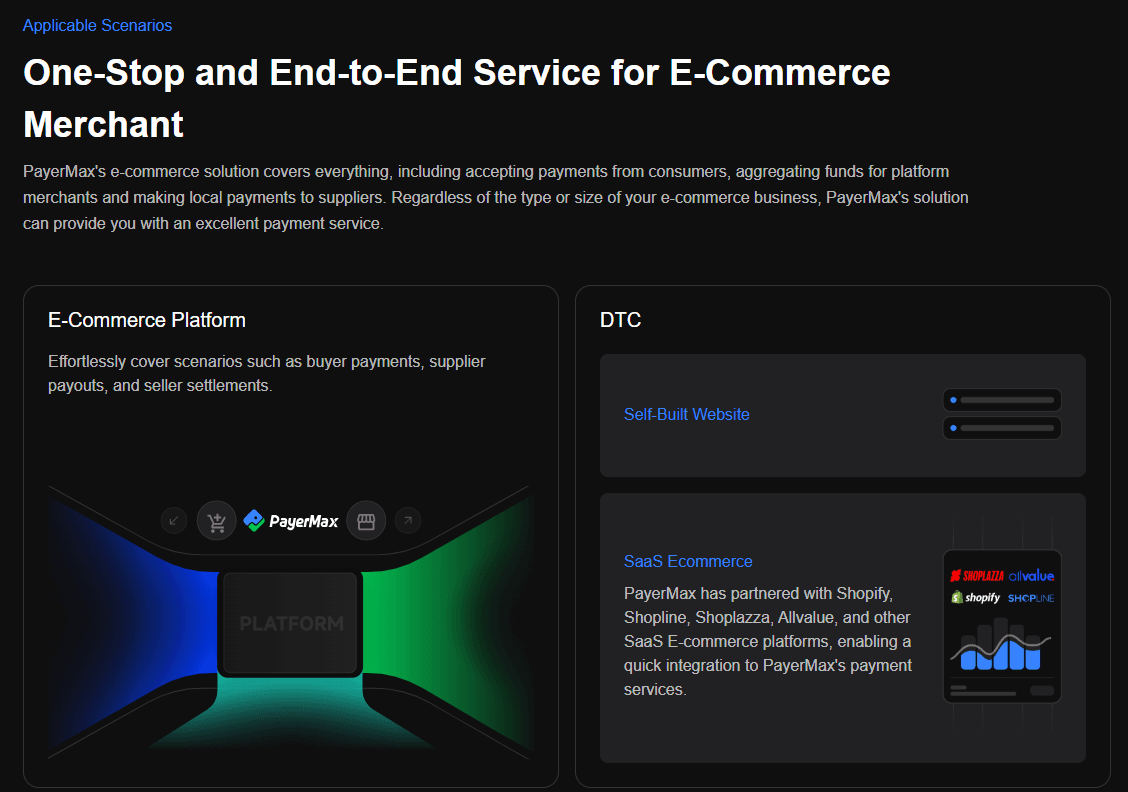Many shoppers in the Philippines prefer using GCash or other local e-wallets over credit cards for online and mobile payments. This preference highlights why local payment methods drive conversion and trust in emerging markets. Payment localization through a cross-border payment gateway enables seamless transactions, removes friction, and unlocks global growth opportunities. Businesses succeed with a localization strategy for payments. For businesses targeting these regions, supporting international cards alone is no longer sufficient. Embracing local payment methods is critical to capturing growth and avoiding lost sales.
Key Takeaways
- Offering local payment methods boosts customer trust and increases sales by matching how people prefer to pay in their region.
- Using a cross-border payment gateway like PayerMax lowers costs, speeds up payments, and helps businesses follow local rules easily.
- Integrating and managing local payments carefully improves user experience, reduces payment failures, and supports business growth in emerging markets.
Importance of Local Payment Methods

Role in Emerging Markets
Local payment methods play a vital role in emerging markets. Many consumers in high-growth markets lack access to traditional banking, making digital payments and alternative payment methods essential for financial inclusion. Local payment processing, such as mobile wallets and peer-to-peer transfers, allows unbanked populations to participate in digital transactions. Businesses that offer local payment options remove barriers and foster inclusion, supporting the e-commerce boom in these regions.
Local payment methods address several barriers:
- They provide accessible alternatives for those without formal banking.
- Advanced security and fraud detection build trust in digital financial services.
- Familiar payment experiences increase approval rates and reduce drop-offs.
A table below summarizes key barriers and solutions:
Barrier | How Local Payment Methods Help |
Limited banking access | Mobile wallets enable digital payments |
Security concerns | Enhanced fraud prevention and local support |
Lack of trust in digital transactions | Familiar options like cash-on-delivery |
Connecting Local Payment Methods with Cross-Border Payment Gateways
Local payment methods and cross-border payment gateways work together to optimize payments in emerging markets. Local methods like Gcash, DuitNow, or mobile wallets reflect consumers’ preferred ways to pay, increasing trust and conversion. A cross-border payment gateway acts as the bridge, integrating these local options into a global payment solution, ensuring compliance with local regulations, supporting multiple currencies, reducing payment failures, and accelerating settlements. By combining local familiarity with global reach, businesses can deliver a seamless, secure, and efficient payment experience across markets.
Impact on E-Commerce
E-commerce businesses thrive when they adapt to local payment processing and payment localization. In emerging markets, over 75% of online purchases use local payment options or digital payments. Payment localization ensures that consumers can use their preferred payment methods, which increases conversion rates and reduces cart abandonment. Local payment methods facilitate payin from consumers, reducing friction and improving conversion rates in emerging markets. PayerMax supports over 600 local payment methods and 70 currencies, covering more than 95% of local payment options in high-growth markets. Seamless integration with platforms like Shopify and Shopline allows merchants to quickly offer localized payments.

Payment localization also addresses regulatory and operational challenges. Adapting to local regulations, managing currency conversion, and providing culturally relevant support all improve the customer experience. Fintech solutions like PayerMax help businesses navigate complex compliance requirements and deliver secure, efficient payments across borders.
Benefits of Payment Localization
Higher Conversion and Approval Rates
Payment localization drives measurable growth for e-commerce businesses in high-growth markets. Merchants who adapt local payment processing to regional preferences see a direct impact on conversion rates and transaction success rates. For example, translating payment pages and supporting multi-currency transactions can increase conversion rates by up to 25%. Shopify data shows that translating e-commerce content into local languages boosts conversion rates by an average of 13%.
Local payment methods such as digital wallets, bank transfers, and buy-now-pay-later services match consumer expectations in emerging markets. These local payment options reduce cart abandonment and improve approval rates. Intelligent routing, optimized authentication, and retry mechanisms further increase authorization rates by up to 5 percentage points. Businesses that offer alternative payment methods and local payment processing create a familiar experience, building trust and inclusion.
Adapting payment methods to local preferences is essential for successful e-commerce localization.
Proper localization of payment options increases sales and customer loyalty.
A table below highlights real-world examples:
| Case Study | Description | Benefit |
|---|---|---|
| Online Retailer | Implemented multi-currency support and translated payment pages | 25% increase in conversion rates |
| Subscription Service | Offered local payment methods in different regions | Enhanced customer trust and reduced churn |
| E-commerce Platform | Ensured compliance with local financial regulations and provided a localized payment experience | Market expansion and legal compliance |
Cost Efficiency and Fast Settlements
Payment localization through a cross-border payment gateway like PayerMax enables merchants to optimize costs and accelerate settlements. Local payment processing routes transactions through banks within the customer’s country, reducing intermediary bank fees that often range from $15 to $35 per transaction. By supporting payments in local currencies, businesses avoid double currency conversion losses, which can be 2-3% per transaction.
Local acquiring and payout solutions from PayerMax leverage domestic payment rails and virtual account numbers, treating cross-border transactions as connected domestic transfers. This approach enables next-day or same-day settlement options, improving liquidity and financial planning. Emerging payment methods such as Malaysia’s DuitNow, Thailand’s PromptPay, and Philippines‘ GCash provide real-time, bank-to-bank payments, drastically reducing settlement times. Multi-currency accounts and local payout support minimize currency conversion friction, further accelerating settlements.
Strategic partnerships with local payment providers improve transaction success rates and support faster settlements.
Local payment processing aligns with local regulations, reducing hidden legal and administrative costs.
Merchants in high-growth markets benefit from lower payment costs, faster access to funds, and improved operational efficiency. PayerMax’s smart routing and cost optimization match acquiring bank channels and settlement paths in real time, helping businesses overcome common pain points such as high payment costs and lengthy settlement cycles.
Compliance and Security
Ensuring compliance with local regulations and maintaining payment security are essential for businesses in emerging markets. PayerMax’s cross-border payment gateway leverages local expertise and holds licenses in regions including Singapore, the Philippines, Thailand, Indonesia, Saudi Arabia, the UAE, and Hong Kong, helping merchants meet regulatory requirements and build trust.
The platform adheres to international standards such as PCI DSS, ISO/IEC 27001:2022, GDPR, and AML/KYC. It uses AI-driven transaction monitoring, adaptive risk scoring, machine learning, and behavioral analytics to detect fraud in real time. Multi-factor authentication, encryption, secure APIs, and automated chargeback management provide additional layers of protection.
With these robust compliance and security measures, businesses can confidently expand into emerging markets while ensuring secure, efficient, and legally compliant payments.
FAQ
What are localized payment methods?
Localized payment methods refer to payment options popular in specific regions. These include mobile wallets, bank transfers, and cash-based payments. Merchants use them to meet local consumer preferences.
How does using a cross-border payment gateway improve payment experience?
A cross-border payment gateway connects merchants with local payment methods, supports multiple currencies, and follows regional regulations. This reduces failed payments, speeds up settlement, and ensures a smoother checkout process for customers.
How do local payment methods impact customer trust and conversion rates?
Local payment methods create familiarity and reduce friction at checkout. When customers can pay using their preferred method—whether PromptPay in Thailand, GCash in the Philippines, or various local bank transfers and e-wallets in Malaysia—they are more likely to complete the transaction. This directly boosts conversion rates and builds long-term trust in the brand.
Why do local payment methods matter in emerging markets?
Many consumers in high-growth regions lack access to traditional banking, so local payment methods like mobile wallets or Gcash enable more people to complete transactions. They reduce friction, build trust, and increase the likelihood of successful purchases.